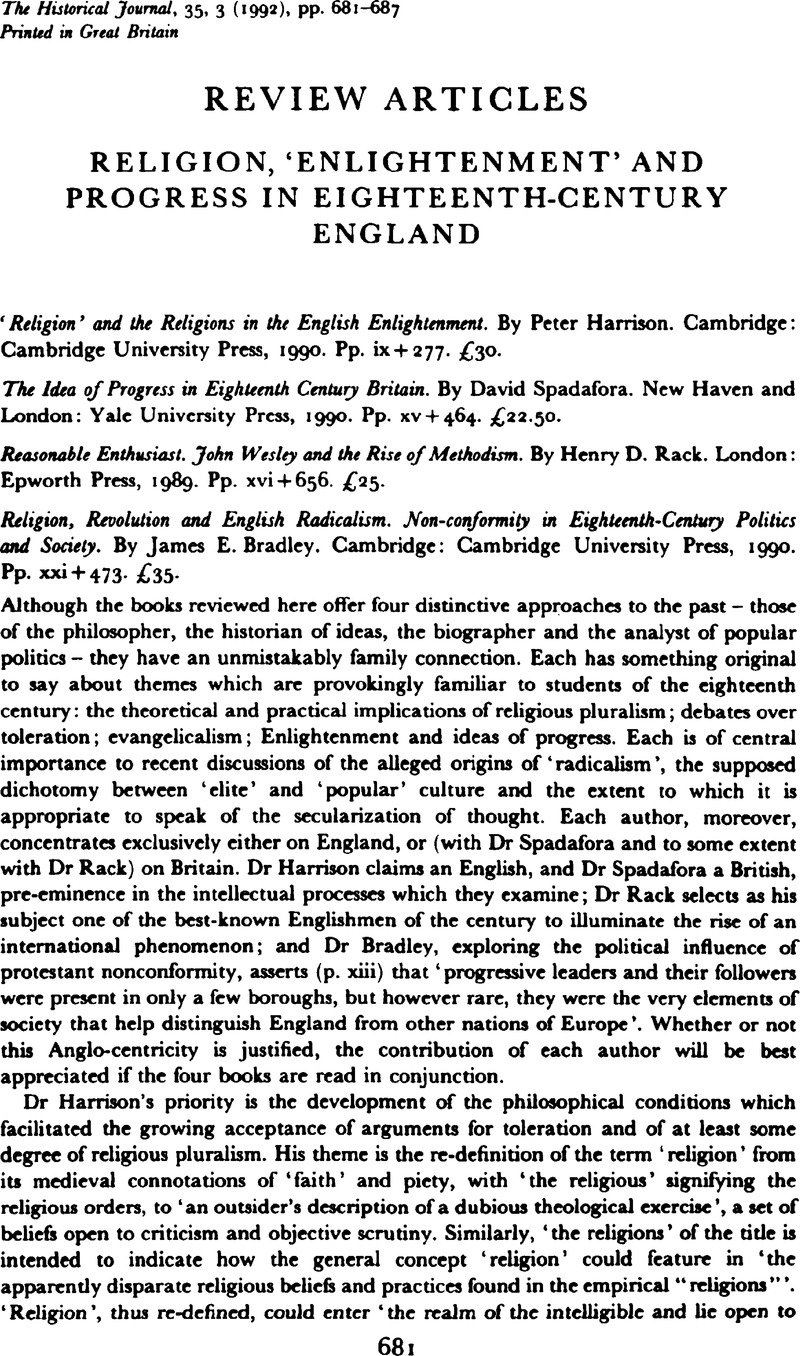No CrossRef data available.
Article contents
Religion, ‘Enlightenment’ and progress in eighteenth-century England
Published online by Cambridge University Press: 25 March 2010
Abstract

- Type
- Review Articles
- Information
- Copyright
- Copyright © Cambridge University Press 1992
References
1 See Cannadine, David, ‘The past and the present in the English Industrial Revolution, 1880–1980’, Past and Prtsent, cIII (1984), 131–72.CrossRefGoogle Scholar Significantly, Dr Spadafora's bibliographical essay includes hardly anything published since 1980.
2 ‘Anglican apologetics and the idea of progress, 1699–1745’, in Crane, R. S., The idea of the humanities and other essays historical and critical (2 vols., Chicago, 1967), 1, 214–87Google Scholar.
3 Although honourable mention should also be made of Pollock, John, John Wesley (London, 1989)Google Scholar.
4 A rare exception (p. 63) is the description of Samuel Johnson as a servitor at Oxford University. There a also a disarming confession ‘reference regrettably lost’ (p. 566 n. 99) in quoting David Ogg (p. 32); in fact the quotation conies from that author's England in the reigns of James II and William III (Oxford, 1955), p. 533Google Scholar.
5 For a recent survey of the debate over smuggling, see Monod, Paul, ‘Dangerous merchandise: smuggling, Jacobitism, and commercial culture in southeast England, 1690–1760’, Journal British Studies, xxx (1991), 150–82CrossRefGoogle Scholar.
6 See Bebbington, David, Evangelicalism in modern Britain. A history from the 1730s to the 1980s (London, 1969), pp. 50ffGoogle Scholar.
7 On this point, albeit from a different perspective, Dr Bradley's view is supported in the important article by Wykes, David L., ‘Religious dissent and the Penal Laws: an explanation for business success?’, History, LXXV (1990), 39–62CrossRefGoogle Scholar.


